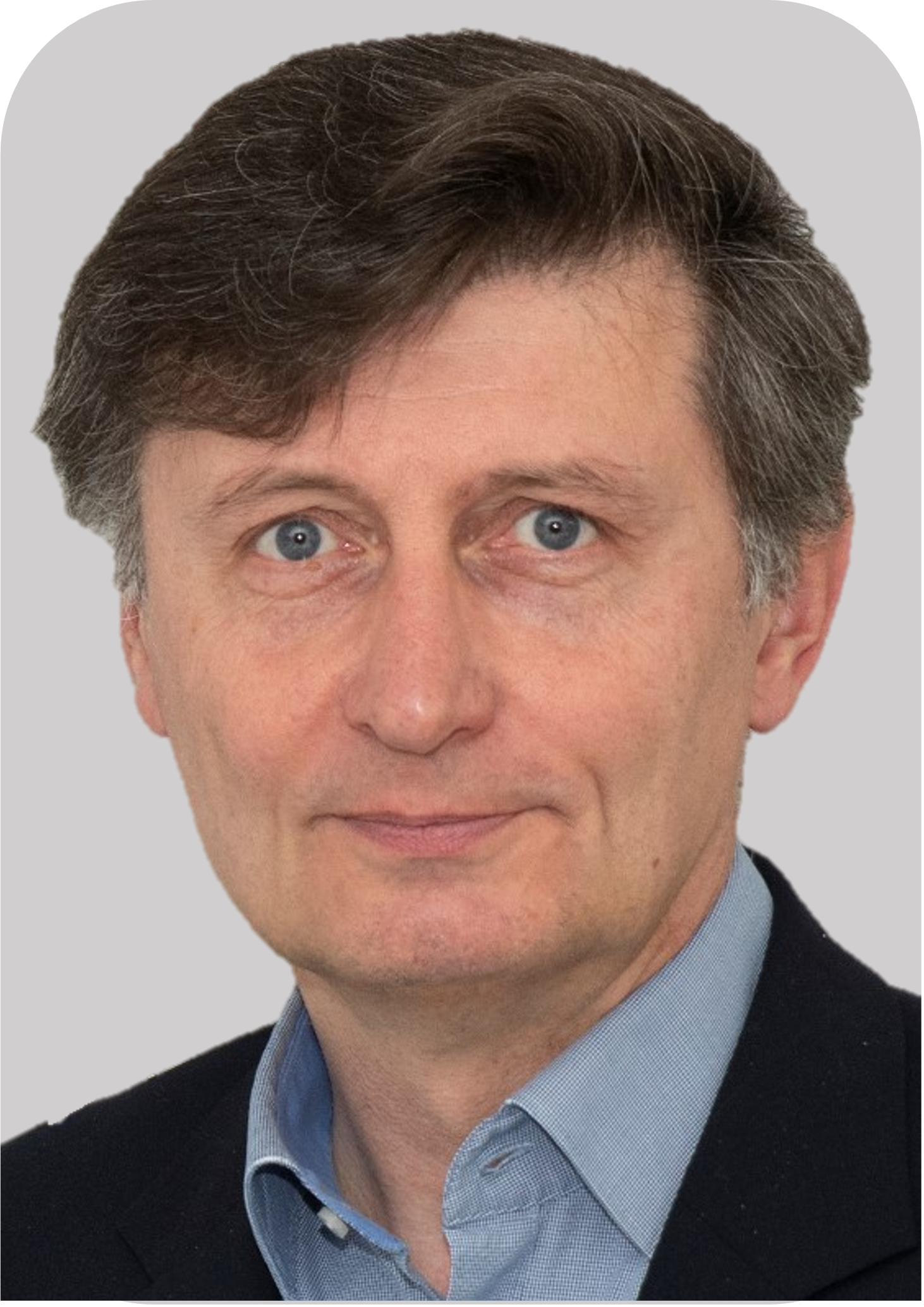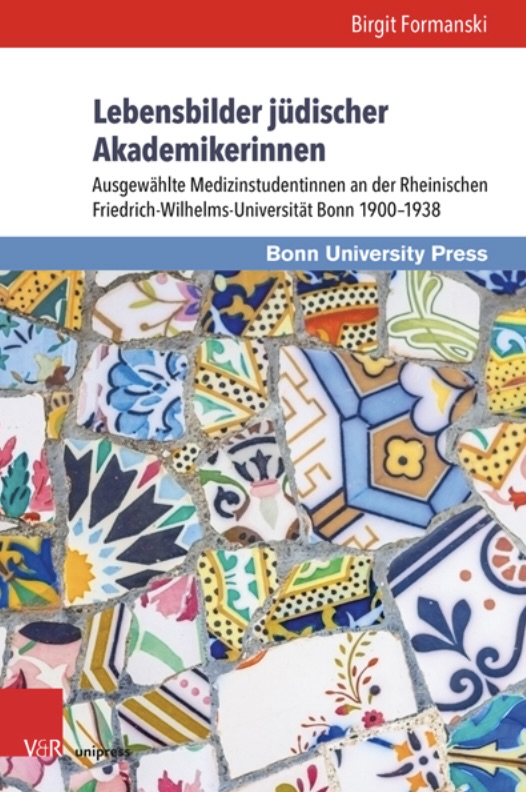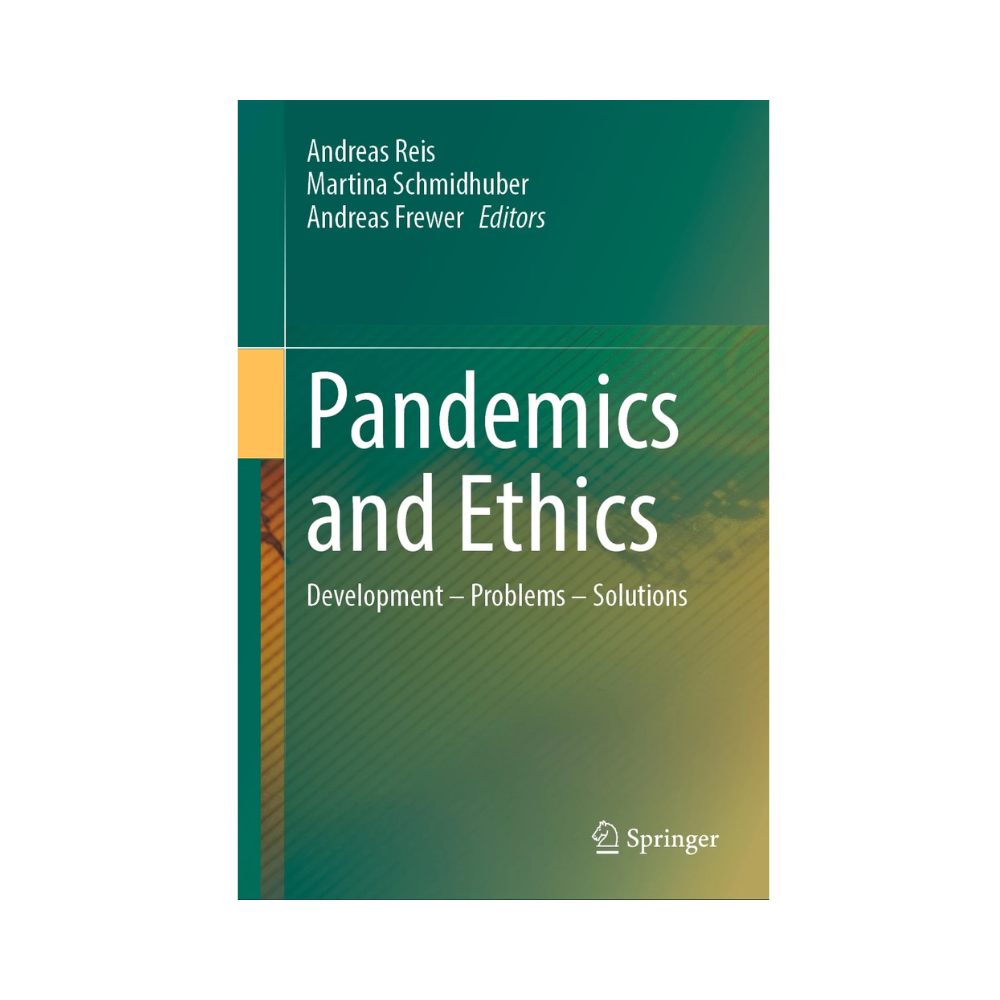
Collaborations:
Prof. Marianne Heimbach Steins,
Christliche Sozialethik, Münster UniversityProf. Ole Döring,
Hunan Normal University/China
Collaborations:
- AG Medical Anthropology,
German Society for Social and Cultural Anthropology (DGSKA) - Zentrum für Religion und Gesellschaft (ZERG)
- Prof. Klaus von Stosch,
International Center for Comparative Theology and Social Issues, Catholic Theological Faculty, Bonn University.
Previous Collaborations:
- Prof. Dr. Dorothea Lüddeckens,
Religious Studies, Zürich University - Prof. Dr. Simon Peng-Keller,
Spiritual Care, Zürich University
Previous Collaborations:
- Prof. Iris Borowy,
History of International Development, University of Shanghai/China - Prof. Hubert Steinke,
Medical History, University of Bern/Switzerland
Carola Rensch, Die internationalen Kooperationen der Bonner medizinischen Parasitologie unter Gerhard Piekarski (1910-1992), Dr. med. 2017
Matthias Egg, Krankenfürsorge im Spannungsfeld von Medizin, Glauben und Gesundheitspolitik, Dr. med. 2015
Susanne Harlfinger, Die Geschichte der Lepraarbeit in Ostafrika. Ein Vergleich der Entwicklung in Tanzania, Uganda und Kenya, Dr. med. 2012

Prof. em. Dr. med. Dr. phil. Heinz Schott
Priv.-Doz. Dr. phil. Ralf Forsbach
2019
Bruchhausen W (2019), Hygiene und Öffentliche Gesundheit in Bonn vom 18. bis 20. Jahrhundert, in: W Bruchhausen, Th Kistemann (Hg.), 125 Jahre Institut für Hygiene und Öffentliche Gesundheit der Universität Bonn (Bonn 2019) 7-56.
2018
Forsbach R (2018a) Verfolgt, vertrieben, rehabilitiert. Alfred Kantorowicz und seine Bonner Kollegen (1933-1962), in: Dominik Groß/Jens Westermeier/Mathias Schmidt/Thorsten Halling/Matthis Krischel (Hg.), Zahnärzte und Zahnheilkunde im „Dritten Reich“. Eine Bestandsaufnahme = Medizin und Nationalsozialismus 6 (Münster: LIT) 197-213.
Forsbach R (2018b), Repression und Ideologisierung (1933–1945), in: Dominik Geppert (Hg.), Forschung und Lehre im Westen Deutschlands 1918–2018 = Geschichte der Universität Bonn, Bd. 2 (Göttingen: V&R unipress/Bonn University Press) 115-195.
Forsbach R (2018c), Löwenstein, Otto, Psychiater und Pupillograph, in: Biographisches Archiv der Psychiatrie (www.biapsy.de/index.php/de/9-biographien-a-z/274-loewenstein-otto).
Bruchhausen W (2018), Wissenschaftlich-technischer Fortschritt und Untergangsängste: Medizinische Fakultät und Universitätskliniken 1870–1933, in: Thomas Becker / Philip Rosin (Hg.), Die Natur- und Lebenswissenschaften = Geschichte der Universität Bonn, Bd. 4 (Göttingen: V&R unipress/Bonn University Press) 40-79.
Bruchhausen W (2018), Studienreformen, Fächervermehrung und Schwerpunktbildung: Die Medizinische Fakultät Bonn seit 1970, in: Thomas Becker/Philip Rosin (Hg.), Die Natur- und Lebenswissenschaften = Geschichte der Universität Bonn, Bd. 4 (Göttingen: V&R unipress/Bonn University Press) 122-170.
Holzgreve W, Bruchhausen W (2018), Aktuelle Herausforderungen des Universitätsklinikums Bonn – Das UKB in der Balance zwischen Exzellenz und Ökonomie, in: Thomas Becker/Philip Rosin (Hg.), Die Natur- und Lebenswissenschaften = Geschichte der Universität Bonn, Bd. 4 (Göttingen: V&R unipress/Bonn University Press) 170-187.
Schott H (2018), Die Medizinische Fakultät der Universität Bonn 1818–1870, in: Thomas Becker/Philip Rosin (Hg.), Die Natur- und Lebenswissenschaften = Geschichte der Universität Bonn, Bd. 4 (Göttingen: V&R unipress/Bonn University Press) 9-40.
2017
Forsbach R, Hofer HG (2017), Der Versuch einer großen Integration. Paul Martini und der erste Nachkriegskongress der Deutschen Gesellschaft für Innere Medizin, in: NTM – Zeitschrift für Geschichte der Wissenschaften, Technik und Medizin 25, 35-68.
Forsbach R (2017), Panse, Friedrich Albert. Psychiater und Gutachter der „Aktion T4“ im Nationalsozialismus, in: Biographisches Archiv der Psychiatrie (www.biapsy.de/index.php/de/9-biographien-a-z/259-panse-friedrich).
Rensch C, Bruchhausen W (2017), Medical Science meets ‘Development Aid’. Transfer and Adaptation of West German Microbiology to Togo, 1960–1980, in: Medical History 61(1) (2017) 1-24.
Bruchhausen W (2017c), Globale Gesundheit vom Rhein. Die ABC-Region als Ursprung medizinischer Auslandshilfe 1889-1989, in: Axel Karenberg, Dominik Gross, Mathias Schmidt (Hg.), Beiträge des „Rheinischen Kreises der Medizinhistoriker“, Band 4 (Kassel: Kassel University Press) 145-162.
2016
Forsbach R (2016) Die medizinische Versorgung in Bonn während des Ersten Weltkriegs, in: Dominik Geppert/Norbert Schloßmacher (Hg.), Der Erste Weltkrieg in Bonn. Die Heimatfront 1914-1918 = Veröffentlichungen des Stadtarchivs Bonn 72 (Bonn) 295-323.
2015
Forsbach R (2015) Otto Löwenstein, in: Internetportal Rheinische Geschichte (http://www.rheinische-geschichte.lvr.de/Persoenlichkeiten/otto-loewenstein/DE-2086/lido/57c942b85ceb60.44383422).
2014
Bruchhausen W (2014d), Krankheiten und Krankenversorgung in Bonn, 1818-1918, Teil I und II, in: Die Laterne. Bonner Familienkunde 41, 31-35 und 61-65.
Forsbach R (2014a), Johannes Steudel (1901–1973) als Begründer der Bonner Medizingeschichte. Anfänge der Bonner Medizingeschichte, in: Medizinhistorisches Journal 49, 159–182.
Forsbach R (2014b), Friedrich Albert Panse, in: Internetportal Rheinische Geschichte (http://www.rheinische-geschichte.lvr.de/Persoenlichkeiten/friedrich-albert-panse/DE-2086/lido/57c9580a31d439.44969002)
2013
Bruchhausen W (2013d), Geburtshilfliche Versorgung des Bonner Raums im 18. und 19. Jahrhundert, in: Die Laterne. Bonner Familienkunde 40, 37-45.
Forsbach R (2013a), Die Gleichschaltung der Medizinischen Fakultät der Universität Bonn, in: Ursula Ferdinand/Hans-Peter Kröner/Ioanna Mamali (Hg.), Medizinische Fakultäten in der deutschen Hochschullandschaft 1925–1950 = Studien zur Wissenschafts- und Universitätsgeschichte 16 (Heidelberg: Synchron), 125–136.
Forsbach R (2013b), Studieren in der NS-Zeit, in: Thomas Becker (Hg.), Bonna Perl am grünen Rheine. Studieren in Bonn von 1818 bis zur Gegenwart = Bonner Schriften zur Universitäts- und Wissenschaftsgeschichte 5 (Göttingen: V&R unipress/Bonn University Press) 105-115.
Forsbach R (2013c), Erich Hoffmann, in: Internetportal Rheinische Geschichte (http://www.rheinische-geschichte.lvr.de/Persoenlichkeiten/erich-hoffmann/DE-2086/lido/57c83127431d44.43195770).
2012
Forsbach R (2012a), Friedrich Panse – etabliert in allen Systemen. Psychiater in der Weimarer Republik, im „Dritten Reich“ und in der Bundesrepublik, in: Der Nervenarzt 83, 329–336.
Forsbach R (2012b), Die Medizinische Fakultät der Universität Bonn im „Dritten Reich“ (1933–1945), in: LVR-Portal Rheinische Geschichte 2012 (Link).
Forsbach R (2012c), Erich Hoffmann: Ein arrivierter Dermatologe und dilettierender Dichter als Repräsentant medizinischer Funktionseliten vom Kaiserreich zur Bundesrepublik, in: Magnus Brechtken (Hg.), Life Writing and Political Memoir – Lebenszeugnisse und Politische Memoiren, (Göttingen: V&R unipress) 107-125.
2011
Forsbach R (2011), Paul Martini (1889-1964). Mediziner, in: LVR-Portal Rheinische Geschichte (Link).
2010
Bruchhausen W (2010e), Akademische Hebammenlehrer in Bonn: Vom kurfürstlichen Leibarzt zum preußischen Professor (1777-1828), in: Schäfer D (ed.), Rheinische Hebammengeschichte im Kontext (Kassel: Kassel University Press 2010), 65-83, Wiederabdruck in: Geschichte der Pflege 1 (2012) 13-18.
Forsbach R (2010), „Euthanasie” und Zwangssterilisierungen im Rheinland (1933–1945), in: LVR-Portal Rheinische Geschichte (Link).
2009
Bruchhausen W (2009b), „… das Mystische wissenschaftlich und nicht das Wissenschaftliche mystisch zu machen“ – Joseph Ennemoser als Mesmerist und Medizinprofessor in Bonn (1819-1937), in: Ellen Hastaba/Siegfried de Rachewiltz (Hg.) „Für Freiheit, Wahrheit und Recht!“ Joseph Ennemoser und Jakob Phillipp Fallmerayer. Tirol von 1809 bis 1848/49 (Innsbruck: Universitätsverlag Wagner 2009), 95-112.
Forsbach R (2009), Das katholische Gesundheitswesen des Kaiserreichs im Wettbewerb. Zu Auseinandersetzungen mit Andersgläubigen, säkularen Einrichtungen und innerkirchlicher Konkurrenz, in: Dominik Groß/Axel Karenberg (Hg.), Medizingeschichte im Rheinland. Beiträge des „Rheinischen Kreises der Medizinhistoriker“, Schriften des Rheinischen Kreises der Medizinhistoriker 1 (Kassel) 277-288.
2008
Forsbach R (2008a), Die Medizinische Fakultät in der NS-Zeit, in: Thomas Becker (Hg.), Zwischen Diktatur und Neubeginn. Die Universität Bonn im ‚Dritten Reich’ und in der Nachkriegszeit, (Göttingen: Bonn University Press) 123-140.
Forsbach R (2008b), Der Kampf um Gerechtigkeit. Zur Erneuerung der Medizinischen Fakultät der Universität Bonn nach dem Ende der NS-Herrschaft, in: Thomas Becker (Hg.), Zwischen Diktatur und Neubeginn. Die Universität Bonn im ‚Dritten Reich’ und in der Nachkriegszeit (Göttingen: Bonn University Press) 253-272.
2007
Bruchhausen W (2007), Health Care between Medicine and Religion. The Case of Catholic Western Germany around 1800, in: Hygieia Internationalis. An Interdisciplinary Journal for the History of Public Health 6, 2, 177-94.
2006
Forsbach R (2006), Die Medizinische Fakultät der Universität Bonn im Dritten Reich (München: Oldenbourg 2006).
Forsbach R (2006), Ein einsamer Nationalsozialist. Der Bonner Pädiater Hans Knauer (1895-1952), in: Karen Bayer/Frank Sparing/Wolfgang Woelk (Hg.), Universitäten und Hochschulen im Nationalsozialismus und in der frühen Nachkriegszeit (Stuttgart: Steiner) 167-181.
2003
Forsbach R (2003), „Des Tragens eines deutschen akademischen Grades unwürdig“. Der Entzug von Doktorgraden während des Nationalsozialismus und die Rehabilitierung der Opfer am Beispiel der Universität Bonn, in: Rheinische Vierteljahrsblätter 67, 284-299.
2000
Schott H (Hg.) (2000), Universitätskliniken und Medizinische Fakultät 1950-2000. Festschrift zum 50jährigen Jubiläum des Neuanfangs auf dem Venusberg (Bonn/Hachenburg).
1993
Schott H (Hg.) (1993), Medizin, Romantik und Naturforschung. Bonn im Spiegel des 19. Jahrhunderts; anläßlich der 175-Jahrfeier der Universität Bonn (Bonn: Bouvier).
Melanie Friedrich, Die Schulzahnpflege in Bonn seit dem 19. Jahrhundert (Diss. med. dent. 2024, Betreuung R. Forsbach)
Jonas Gerhard, „Alltagsforschung“ in der NS-Zeit. Zahnmedizinische Dissertationen an der Universität Bonn von 1933 bis 1945 (Diss. med. dent. 2020, Betreuung R. Forsbach)
Carola Rensch, Die internationalen Kooperationen der Bonner medizinischen Parasitologie unter Gerhard Piekarski (1910-1992) (Diss. med. 2017, Betreuung W. Bruchhausen)
Johannes Nikolaus Rückher, Die Achtundsechziger-Bewegung und die Medizinische Fakultät der Universität Bonn (Diss. med. 2013, Betreuung R. Forsbach, Göttingen: Bonn University Press 2014)
Nikolaus Muschong, Hans Virchow (1852–1940). Leben und Werk eines Anatomen und Anthropologen (Diss. med. 2011, Betreuung H. Schott, Göttingen: Bonn University Press 2013)
Sarah Berend, Geschichte der Geburtshilfe im preußischen Bonn (1815–1933) (Diss. med. 2009, Betreuung W. Bruchhausen)











